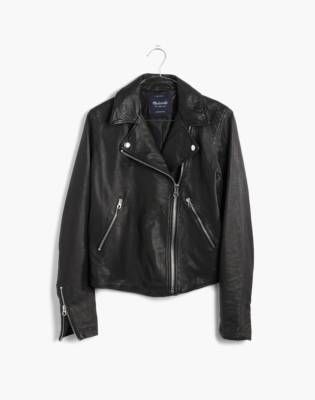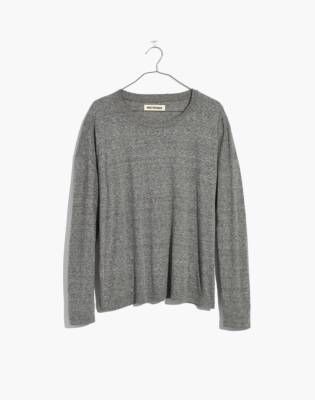Libby Wadle Is Madewell's Secret Weapon
The brand is on track to become a billion-dollar company. As its first-ever CEO, Wadle is leading the way.
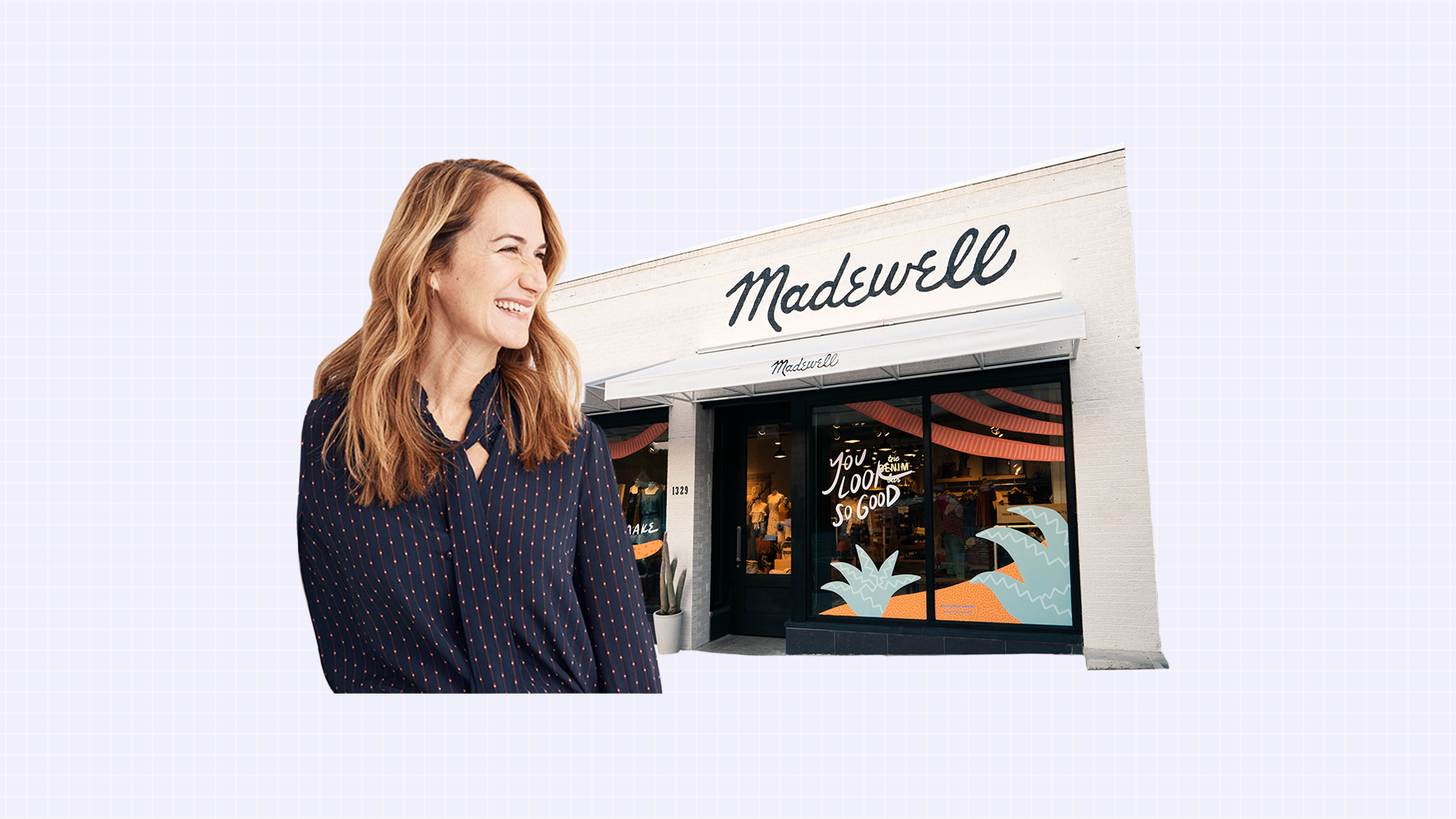

Every morning, Libby Wadle wakes up her 10-and-a-half-year-old daughter and 8-and-a-half-year old son (the halves are very important to them), makes sure they're dressed and fed, sends them to school...and that's pretty much where a "typical day" ends. When you're the first-ever CEO of the beloved clothing brand Madewell—on track to become a billion-dollar company—consistency is rare. But whatever the day throws at her, Wadle, 46, is focused on taking the brand to the next level.
Since J.Crew Group, Inc. re-launched Madewell in 2006 after acquiring it from its original 1937 founder, the perception of the brand has largely been as the "younger sister" of J.Crew—relatable, yet not as established; boxy tees, denim, and Meghan Markle-approved hats, versus the preppy, stiff-looking (someone had to say it) pencil skirts and collared shirts offered at J.Crew. But kid sister was never a label embraced inside Madewell's Long Island City, New York, headquarters. Madewell has always had a clear vision of its identity—and Wadle's newly-created position is proof that the company has always stood on its own. "It’s a really great validation of all that we’ve accomplished and the growth trajectory that we’re on. It’s a new chapter for us," says Wadle. "I’m excited for myself personally, but I’m also truly excited for the team. There's just this element of this is amazing that we’ve gotten to this point."
Shortly after Wadle's promotion, J.Crew Group, Inc. announced that Madewell was considering filing for an IPO and splitting from J.Crew to "maximize value, position both the J.Crew and Madewell brands for long-term growth, and deleverage and strengthen the Company's balance sheet." (For the non-business majors out there, the parent company would use the IPO money to pay off J.Crew's debt.) In the 2018 fiscal year, Madewell sales increased 26 percent to $529.2 million. This potential break from a consumer-perceived "dominant" sister brand is evidence that Madewell has been outshining J.Crew for years.
We’re a denim brand, and that's always what we'll lead with.
Wadle's been preparing her entire career to lead Madewell into its next phase. Before joining J.Crew Group, Inc. in 2004, Wadle logged nearly a decade at Gap underneath then-CEO Mickey Drexler, whom she considers a mentor, and later became division vice president of women’s merchandising at Coach, Inc. She's held multiple executive positions within J.Crew corporate for the past 14 years. By the time Wadle was promoted to CEO in April (after leading Madewell as brand president since 2017), she was primed to tackle the challenges of accessing a larger customer base, increasing brand awareness, and growing Madewell's denim business.
"We’re a denim brand, and that's always what we'll lead with. We’ve made a lot of strides this past year by expanding our assortment and appealing to more types of people," explains Wadle, referring to the company's extended sizing launch last summer. "We’ve seen great momentum and a great response to the efforts that we’ve made thus far, so we feel pretty confident that we have more runway ahead of us to grow the jeans business."
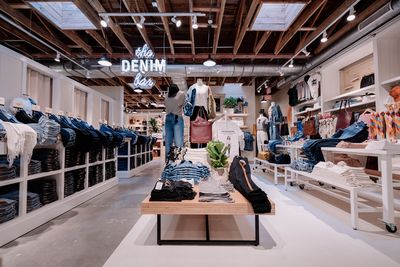
I love that we set up our stores in a way that really encourages this conversation with our denim experts," explains Wadle. "We like to say that the experience that you have in the store is like shopping with your best friend, even if you’re not with your best friend. You’re with your denim expert.
Though her title is now CEO—a more strategic extension of her previous position as president—Wadle admits she has no interest in being the face of the brand, as has been the case with some previous execs, like former J.Crew Creative Director Jenna Lyons. "I live and breathe the brand—I’m probably one of the most passionate people about what we’re building and the products we sell—but I feel like it’s not about having a face of the brand," says Wadle. "The beauty of Madewell is we sell jeans that many different people can wear. You can really just make Madewell your own, and I think that’s the wonderful thing about it."
For the last 13 years, Madewell has maintained its "startup mode" mindset, testing out new ideas and products, like a recent collaboration with activewear brand Outdoor Voices, its very own sustainable swim line, and sneakers with proprietary technology. Wadle credits this as a key element of the brand's success. "It’s about having a gut, but also really listening to the customer and moving her forward in the way that she wants to be moved when it comes to fashion, knowing when to keep the classics going, and investing in the right things," explains Wadle who, believe it or not, never studied fashion or retail merchandising (she majored in English). "It’s an education on the job, but let’s be honest—it’s not medical school."
Stay In The Know
Get exclusive access to fashion and beauty trends, hot-off-the-press celebrity news, and more.
Following through on its goal to connect with its customers, Madewell prides itself on its relationship with the local communities surrounding its 131 U.S. stores. The company launched a "Hometown Heroes Collective" initiative to help local creatives and artists grow their businesses by giving them increased exposure both in-store and online. "Everyone who works on the Madewell team has a real understanding of how crucial it is that we listen to the customer, then we incorporate that into what we’re doing in our process and our product," says Wadle. "She’s fundamental to our success."
Wadle considers Madewell's stores the "hub of its brand," the place in which her team learns the most about its customers, which grew by 40 percent in 2018. "We have a great e-commerce business—we’re highly digital and it’s certainly where we’ll be investing going forward—but investing in digital doesn’t just mean investing in the website," emphasizes Wadle. "We’re looking for ways to improve the experience in-stores to make it feel like one experience for the customer because she is our best customer—the one that shops in our stores and on our website."
The opportunities I get the most anxious-but-excited about, that feeling you get in the pit of your stomach...I run toward those. That has kept me really engaged and energized within the places that I’ve worked.
As Wadle takes the reigns with a majority women team behind her, it's not a matter of if Madewell will become a billion-dollar company, it's when. Though she's unable to go into detail about exactly how they'll get there, Wadle isn't going to let any potential roadblocks get in the way of the bigger picture: to be more strategic than ever, and allow Madewell to flourish in its next chapter.
"I experience highs and lows depending on what my numbers say. That's why I love this business. You really learn how to smooth that out and go with the flow as you grow," she says. "The most important thing is to not overreact and really build for the long-term. I don’t let the lows overtake the overarching strategy and direction we should be moving in."
Shop Libby Wadle's Favorite Madewell Items
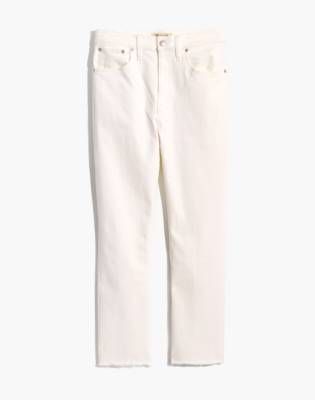
"The High Rise Slim Boyjean in all washes is my go to. I buy two sizes: my regular to wear a bit more slouchy for a weekend look, and a size down from what I typically wear to get a high-rise 80’s vibe."
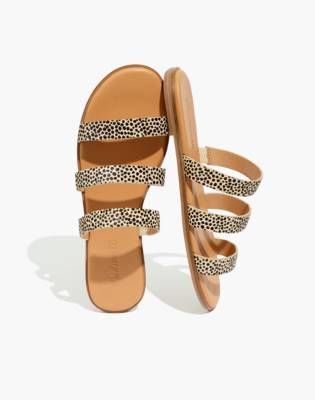
"This sandal goes with everything—dressy or casual—and the footbed was created to be super comfy!"
Rachel Epstein is a writer, editor, and content strategist based in New York City. Most recently, she was the Managing Editor at Coveteur, where she oversaw the site’s day-to-day editorial operations. Previously, she was an editor at Marie Claire, where she wrote and edited culture, politics, and lifestyle stories ranging from op-eds to profiles to ambitious packages. She also launched and managed the site’s virtual book club, #ReadWithMC. Offline, she’s likely watching a Heat game or finding a new coffee shop.
-
 Princess Anne's Unexpected Suggestion About Mike Tindall's Nose
Princess Anne's Unexpected Suggestion About Mike Tindall's Nose"Princess Anne asked me if I'd have the surgery."
By Amy Mackelden Published
-
 Queen Elizabeth's "Disapproving" Royal Wedding Comment
Queen Elizabeth's "Disapproving" Royal Wedding CommentShe reportedly had lots of nice things to say, too.
By Amy Mackelden Published
-
 Palace Employees "Tried" to Get King Charles to "Slow Down"
Palace Employees "Tried" to Get King Charles to "Slow Down""Now he wants to do more and more and more. That's the problem."
By Amy Mackelden Published
-
 Peloton’s Selena Samuela on Turning Tragedy Into Strength
Peloton’s Selena Samuela on Turning Tragedy Into StrengthBefore becoming a powerhouse cycling instructor, Selena Samuela was an immigrant trying to adjust to new environments and new versions of herself.
By Emily Tisch Sussman Published
-
 This Mutual Fund Firm Is Helping to Create a More Sustainable Future
This Mutual Fund Firm Is Helping to Create a More Sustainable FutureAmy Domini and her firm, Domini Impact Investments LLC, are inspiring a greater and greener world—one investor at a time.
By Sponsored Published
-
 Power Players Build on Success
Power Players Build on Success"The New Normal" left some brands stronger than ever. We asked then what lies ahead.
By Maria Ricapito Published
-
 Don't Stress! You Can Get in Good Shape Money-wise
Don't Stress! You Can Get in Good Shape Money-wiseFeatures Yes, maybe you eat paleo and have mastered crow pose, but do you practice financial wellness?
By Sallie Krawcheck Published
-
 The Book Club Revolution
The Book Club RevolutionLots of women are voracious readers. Other women are capitalizing on that.
By Lily Herman Published
-
 The Future of Women and Work
The Future of Women and WorkThe pandemic has completely upended how we do our jobs. This is Marie Claire's guide to navigating your career in a COVID-19 world.
By Megan DiTrolio Published
-
 Black-Owned Coworking Spaces Are Providing a Safe Haven for POC
Black-Owned Coworking Spaces Are Providing a Safe Haven for POCFor people of color, many of whom prefer to WFH, inclusive coworking spaces don't just offer a place to work—they cultivate community.
By Megan DiTrolio Published
-
 Where Did All My Work Friends Go?
Where Did All My Work Friends Go?The pandemic has forced our work friendships to evolve. Will they ever be the same?
By Rachel Epstein Published
